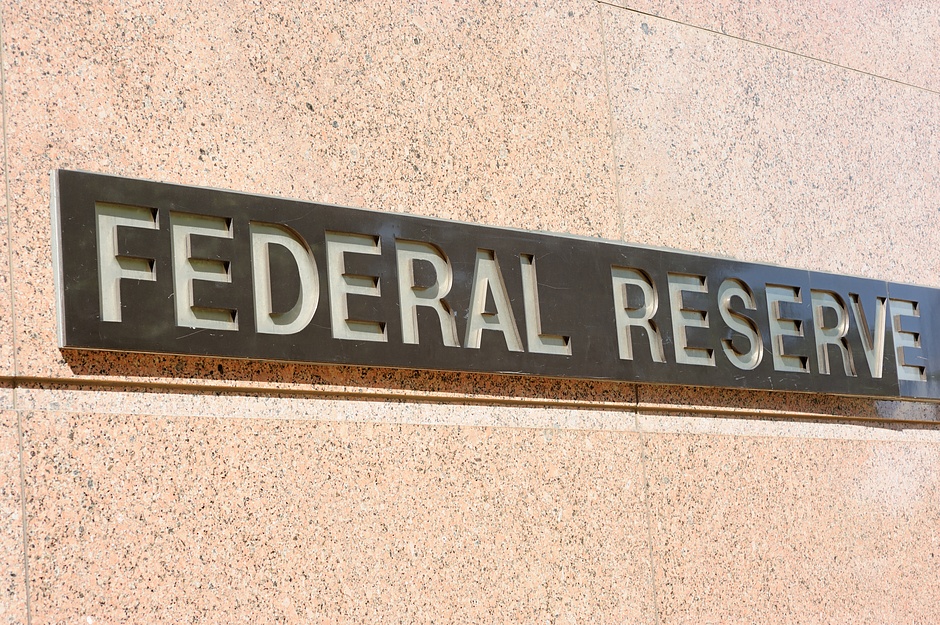Epic fail as Fed chairman Powell claims crebanks safe and sound

As more cracks in the foundation of the banking system appear, gold prices are once have once again been knocking on the door of new records, although we’re seeing a pullback here on Friday.
Industrial metals along with most other commodities slipped this week on banking and recession fears.
Federal Reserve chairman Jerome Powell attempted to reassure Americans that the banking system is sound even as he announced another rate hike that will add further stresses on credit markets. Powell also insisted that he thinks it's likely the economy will avoid a recession in spite of the gathering warning signs.
Jay Powell: Let me comment briefly on recent developments in the banking sector. Conditions in that sector have broadly improved since early March, and the U.S. banking system is sound and resilient. I'll just say I continue to think that it's possible that this time is really different, and the reason is there's just so much excess demand really in the labor market. The case of avoiding a recession is, in my view, more likely than that of having a recession, but it's not that the case of having a recession, I don't rule that out either. It's possible that we will have what I hope would be a mild recession.
Powell's retort that "this time is different" and the banking system could prove to be just as "sound and resilient" in 2023 as inflation was "transitory" in 2022.
In other words, the banking system is increasingly exposing itself as unsound and fragile. No amount of rosy Fedspeak should give depositors confidence that their savings are secure.
Only a few minutes Powell floated his claim that the banking system is sound and resilient, regional bank stocks got slammed down hard on news that PacWest bank was in a panic to find a buyer or obtain a capital injection.
Concerns continue to rise that many if not most medium sized banks may be insolvent as a result of losses from their foolish investments in government bonds.
Even if deposits are covered by insurance and teetering banks are rescued, bailouts won't bring soundness back to the banking system. The costs of unsound financial practices will ultimately be absorbed by taxpayers and all holders of depreciating Federal Reserve note dollars.
Unfortunately, the federal government's finances are anything but sound. Treasury Secretary Janet Yellen warned this week that the United States could default on its debt as soon as next month.
However, many observers doubt the government would actually default even if the nation’s credit card limit isn't raised by Congress. The administration is pursuing emergency work-arounds behind the scenes.
One of the bureaucratic maneuvers being discussed once again is the issuance of trillion-dollar platinum coins. One of the leading advocates of the ploy is Rohan Grey, a professor at Willamette University College of Law. In 2020, he worked with far-left Congresswoman Rashida Tlaib to advocate trillion-dollar coins as a backdoor way to implement Modern Monetary Theory and enable the government to ramp up stimulus spending.
Under the scheme, the Treasury department would use its authority to mint platinum coins in any denomination and arbitrarily stamp a $1 trillion face value on them. It would then deposit the coins at the Federal Reserve and tap them for their official fiat cash value.
There are other debt financing gimmicks in the works, including having the Fed act as the government's "fiscal agent" in buying defaulted Treasury securities -- essentially mopping up the mess created by any technical default and enabling the government to pay its bills.
Fed Chairman Powell has refused to say publicly whether the central bank would take on such a role. But it's difficult to imagine a scenario where it would refuse to do so if the Biden administration declared it would move forward on such a debt ceiling work-around.
In an exchange with then chairman Ben Bernanke and other Fed officials back in 2013, Powell makes it clear that he would monetize the government debt.
Central bankers had specifically discussed the possibility of buying defaulted Treasuries in response to any failure by Congress to raise the debt ceiling. They came to the conclusion that, yes, they would have to do so in order to save Uncle Sam from supposed financial Armageddon.
Former Federal Reserve chairman Alan Greenspan has also said that the government will never default under our monetary system because the Fed can always print the currency needed to avert that kind of catastrophe.
Of course, if Janet Yellen and Jerome Powell came out and said bluntly that the central bank will monetize the debt no matter what, that would likely trigger a steep drop in the value of the U.S. dollar -- something they would obviously like to avoid.
Whether the Federal Reserve note's purchasing power crashes suddenly or continues to decline more gradually, it has nowhere to go but down. And as investors perceive risks rising in the banking system and the stock market, they may find precious metals to be increasingly attractive as safe havens.
And that, in fact, is exactly what is happening.
At Money Metals, we continue to see record buying and a massive influx of first timers. The twin threats of currency debasement and bank failures are driving the situationally aware toward alternative forms of savings like physical gold and silver.
To receive free commentary and analysis on the gold and silver markets, click here to be added to the Money Metals news service.
Author

Mike Gleason
Money Metals Exchange
Mike Gleason is a Director with Money Metals Exchange, a national precious metals dealer with over 500,000 customers.

















